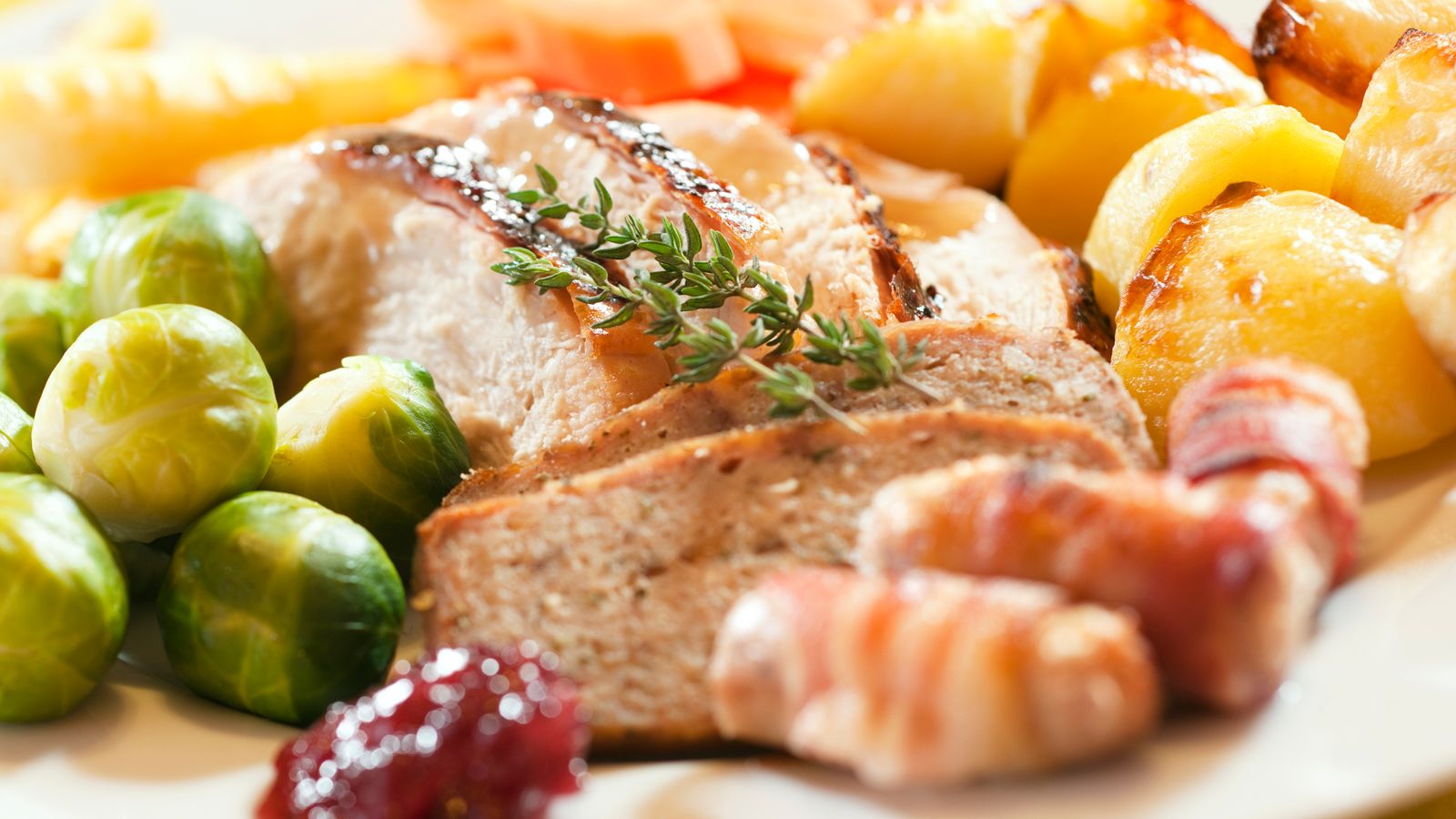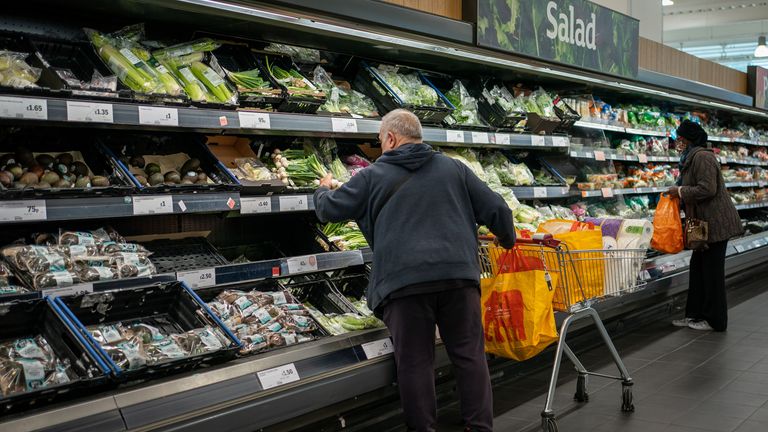Cost of Christmas dinner set to rise in ‘record-breaking’ festive grocery spree


The cost of a traditional Christmas dinner will rise on last year, according to a closely-watched report that is also forecasting record sales for supermarkets over the festive season.
Kantar Worldpanel, which tracks sales and prices at supermarket chains, said its annual measure for the cost of the typical main meal stood at £31.71 for a family of four.
The value of the list of goods, which comprises a frozen turkey along with vegetables – including potatoes and sprouts – and a Christmas pudding, was 1.3% higher compared to the lead-up to Christmas 2022.
While up, the figure is well below the UK’s rate of inflation which currently stands at 5.6%.
The Christmas dinner item which has shot up the most in price was cranberry sauce, Kantar said, which is more than 26% more expensive than last year.
The sparkling wine element of the meal was almost 6% lower than in 2022, with sprouts and the pudding also cheaper.
The report said that discounting by supermarkets in the run-up to the festive season, aimed at locking in customer loyalty for the big Christmas shop, continued to help push its measure of grocery inflation to ease over the four weeks to 26 November.
It stood at 9.1% compared to 9.7% over the previous month.
The report said that chains could collectively rake in more than £13bn for the first time over Christmas – a consequence of the higher prices we are being asked to bear.
Advertisement
Fraser McKevitt, head of retail and consumer insight at Kantar, said: “The scene is set for record-breaking spend through the supermarket tills this Christmas.
“The festive period is always a bumper one for the grocers with consumers buying on average 10% more items than in a typical month.
“Some of the increase, of course, will also be driven by the ongoing price inflation we’ve seen this year.
“While the rate at which grocery prices are rising is still well above the norm, the good news for shoppers is that inflation is continuing to come down.”
Please use Chrome browser for a more accessible video player

1:30
Nov: ‘People are starting to spend a bit less’
The Kantar report was released as industry body the British Retail Consortium (BRC) expressed further concern about sales volumes more widely in the run-up to Christmas, fearing that cost of living pressures are taking their toll on budgets.
After official figures showed sales at COVID lockdown levels during October, the BRC suggested that encouraging signs for spending in early November did not hold up for the month as a whole despite widespread early Black Friday discounting.
Its latest Retail Sales Monitor showed total sales by value were 2.7% up last month, easily lagging the rate of inflation.
Food and drink, health, personal care and beauty products continued to drive growth, while jewellery and watches saw the biggest decline in sales on the high street.
BRC chief executive Helen Dickinson said: “Black Friday began earlier this year as many retailers tried to give sales a much-needed boost in November.
“While this had the desired effect initially, the momentum failed to hold throughout the month, as many households held back on Christmas spending.
“Retailers are banking on a last-minute flurry of festive frivolity in December and will continue working hard to deliver an affordable Christmas for customers so everyone can enjoy some Christmas cheer.”
Read more:
Escaped reindeer who blocked dual carriageway recaptured
‘Where’s the other half?’ Trafalgar Square tree mocked
Festive meal favourites at risk after washout harvest
It may not be all bad news for stores and the wider economy, though.
Separate data from Barclays showed confidence in spending on non-essential items reached its highest level since April last month.
Its latest report on card spending pointed to strong demand for fashion on the high street.